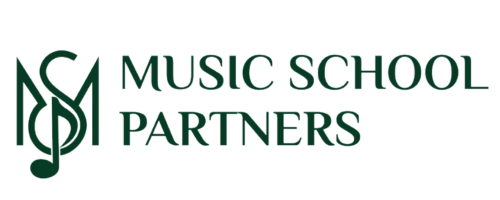Let’s talk about something that might not feel as natural as strumming a guitar or nailing a tricky piano piece: marketing.
I get it—your heart is in the music. The joy of teaching kids to play their first notes or watching students perform their hearts out fuels your passion.
Here’s the thing: without effective marketing, your school might struggle to reach people actively searching for your services. Parents, adult students, and others are often looking for music schools online—primarily through Google (and occasionally Bing).
They tend to engage with schools that have strong visibility in search results and positive reviews, making these factors essential to attracting new students.
Let’s go over some high-level ideas to get you in the right mindset and understand the fundamentals and ensure your music school is positioned for success in the online space.
1. Get to the Heart of Your Marketing: Connecting with Parents
Let’s be real. Most of your new students don’t call you directly; their parents do. And behind every phone call, there’s a parent who wants more than just a music lesson. They want confidence, joy, and accomplishment for their child.
Your job is to show them how you can help them achieve those. You’re not selling piano lessons; you’re offering little Sarah her first standing ovation at the family holiday party or helping Jake learn the discipline that’ll boost his math skills.
Tip: Craft your marketing message with parents in mind. Speak to their dreams, concerns, and values. Use testimonials from parents who’ve seen their kids grow through your programs.
2. Marketing is Best with Storytelling

Marketing is best with storytelling because it transforms your brand into something relatable, aspirational, and memorable. Imagine you run a music school.
Why did you start it?
Maybe it’s because music gave you confidence as a child or opened doors to a brighter future. Parents don’t just want to know the “what” of your business—they want to see the possibilities for their child’s future.
They dream of their child gaining confidence, mastering skills, and perhaps even achieving greatness through music.
Traditionally, marketing is thought of through the lens of the Five P’s (or four depending on who you ask).
- Product / Service: Your story starts with what you offer. How does your product solve a problem, fulfill a need, or bring joy to your audience?
- Price: The value behind your product needs to match the narrative. Is it a premium experience or an accessible option?
- Place: Where your story is told is just as critical as how it’s told. Are you meeting your audience where they are—online, in-person, or both?
- Promotion: The tools you use to amplify your message matter. Social media, ads, email campaigns—these are the vehicles that drive your story to the right ears.
- People: The heart of your story lies in the people—your audience and your team. Marketing is about building relationships, understanding your audience’s needs, and making them the hero of your story.
By weaving in your school’s story, the students’ current successes, and the vision of what parents hope their child can achieve, you create a powerful narrative.
Some Ideas on How to Weave Your Story Into Your Brand & Marketing Efforts:
- Define your story: Who are you and why should parents even care?
- Message alignment: Parents ultimately – and rightfully so – really only care about what is best for their child. Your messaging should focus on this as well. Build that vision of their child’s future, how they will be playing on stage, developing confidence, and building life skills through music lessons at your school. A well-positioned school can also get away with charging premium rates.
- Success Stories & Student Highlights: Now that you told your story and created the messaging and vision for parents, make it concrete with student stories, showcases and parent testimonials. Recitals are great for this.
- Weave it Together: Inject success stories and highlights into your marketing efforts to complete the circle. Parents want to know more than whether or not you simply offer piano lessons.
3. Baby Steps to Marketing Mastery

Marketing doesn’t have to feel overwhelming. Start small, just like you’d teach a beginner to play scales before tackling Beethoven.
Here’s a simple three-step DIY approach:
Step 1: Self-Education
Set aside 15-30 minutes daily to learn one marketing skill. Check out our YouTube channel. We create content with a specific focus on music school owners. Our music school marketing blog is also a great place to hang out 🙂
Step 2: Create a Simple Plan
If the DIY route is one you want to pursue, select one key area to focus on, learn and then put into practice.
Step 3: Take Action
It’s easy to get stuck in the “learning” phase, but the magic happens when you implement what you’ve learned. Taking small steps can really get the ball rolling.
This could be setting up an email client account so you can start that monthly newsletter you’ve been putting off, or setting up a Google Sheet to track school goals, progress or lead follow-up. (Grab ours here!)
4. Consistency is Your Best Friend

Marketing isn’t a one-and-done deal. Strategy and tactics can change with markets and technology.
Just like your students need regular practice to improve, your marketing needs regular attention to work. Here are some tips:
- Block time in your calendar for marketing tasks. Treat it like a lesson you can’t skip!
- Use tools like Hootsuite or Buffer to schedule posts and keep your efforts consistent.
If a suite of paid tools is out of reach, there are plenty of free options to get you started. Check out our list of free tools for music school owners:
- Canva: Design recital posters or Instagram posts in minutes! With its drag-and-drop features, Canva lets you create professional-looking visuals without needing graphic design expertise.
- Google Docs: Think of this as your trusty digital notebook. Whether you’re drafting email updates, brainstorming lesson plans, or collaborating with your team, Google Docs keeps everything neat, shareable, and accessible anywhere.
- Google Sheets: Student schedules, budgets, marketing plans—track it all in one place! Bonus: Real-time sharing means everyone’s on the same page (literally).
- Notion: If your notes and to-dos are scattered across notebooks and apps, Notion is your new best friend. It’s an all-in-one workspace where you can organize lesson plans, create content calendars, or manage to-do lists.
- Asana: Feeling overwhelmed by your to-do list? Asana organizes tasks, sets deadlines, and keeps you on track. Think of it as your digital project manager.
- Hootsuite or Buffer: Social media can feel like a full-time job, but these tools let you schedule posts in advance so you can “set it and forget it.”
- Mailchimp: Ready to send out your first newsletter? Mailchimp makes email marketing simple with its free plan—ideal for staying in touch with students and their families.
- Zoom: Perfect for virtual lessons, parent-teacher check-ins, or hosting online workshops. Pro tip: Use features like breakout rooms for group workshops or student rehearsals.
- Unsplash: Need high-quality images for your website or social posts? Unsplash offers a library of royalty-free, professional photos to improve your visuals.
- Slack: Keep communication flowing with your team. Slack keeps communication streamlined with organized channels, file sharing, and real-time messaging so nothing gets lost in translation.
- Calendly: Tired of back-and-forth emails to schedule lessons? Calendly makes it easy for students and parents to book appointments that fit your schedule.
- Google Calendar: Keep track of lessons, events, and personal time all in one place. It’s like your all-in-one time management buddy.
- Google Forms: Gather feedback, RSVP counts, or survey responses with ease. Google Forms helps you stay in tune with your students’ and parents’ needs.
5. Celebrate and Reflect
Every time a new student signs up or a parent compliments your program, that’s a win worth celebrating! But don’t stop there—take a moment to reflect and learn. Ask yourself:
- What worked?
- How did they hear about you?
- How can you amplify what’s working and adjust what isn’t?
Informal observations are great, but go deeper. Track your marketing efforts, measure results, and gather data to understand the real drivers behind your success. Marketing is like music—it’s a craft you fine-tune over time by listening closely, adjusting your approach, and perfecting your rhythm.
Your Music, Their Dream

When you started your school, it wasn’t just about teaching music—it was about sharing its magic. You wanted to create a place where kids could discover their rhythm, build confidence, and have a blast.
Marketing? Well, it’s a way to connect with the families searching for exactly what you offer. Reframing it to be about finding the right people and delivering the right message can help you dive in with confidence instead of feeling overwhelmed.
Of course, Music School Partners is here for you as well! We provide complete music school marketing and operational solutions to eliminate the entrepreneurial pains experienced by owner-operators.

Tune Up Your Music School’s Reach and Enroll More Students.
Book a Free ConsultationMeet Ray
Ray has managed millions in music school marketing budgets for a range of performing arts schools across the entire United States. His passion is helping school owners find their true value proposition and generate visibility in their communities.


